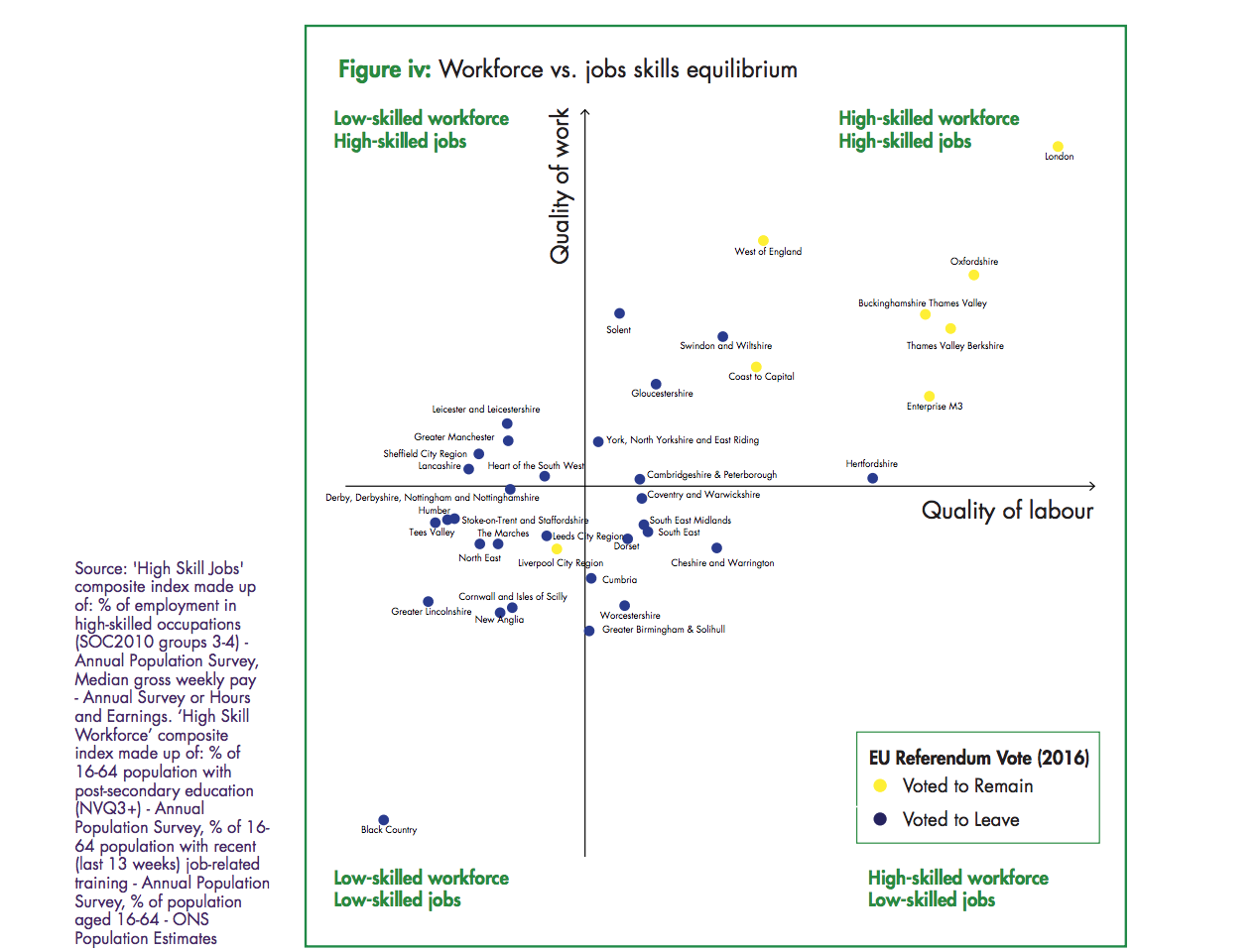The government should agree a local industrial strategy with every part of the country by the end of the Brexit transition period, the think-tank Localis has suggested in a report.
“Now places - namely, strategic authorities, local enterprise partnerships, local business communities and other civic institutions such as universities – must take the industrial strategy forward in their area,” Localis stated in releasing The Delivery of an industrial strategy.
“This means local and strategic authorities using their existing legal capacity fully.”
The report suggested there were “fundamental weaknesses in the way” the strategy had been set up, which means it was “already at risk of stalling”.
“Some of these tensions can be addressed nationally, but some only at a the local level”.
Philip Atkins, vice-chairman of the County Councils Network and leader of Staffordshire County Council, said: “This report from Localis rightly argues that a successful industrial strategy relies on local places taking forward local strategies; a blanket one size fits all policy will not fulfil the government’s pledge to create ‘an economy that works for everyone’”.
Paul Carter, leader of Kent County Council, said: “The local industrial strategy is an opportunity to re-connect employers and employees to local growth and for government and counties to work together in new and creative ways relevant to local business.”
Localis' report criticised the government for not evenly allocating resources and attention to areas across the county to ensure they all had their own strategies by end the of the Brexit transition period.
The civil service is concentrating on three most advanced areas of England- Greater Manchester, the West Midlands, and the Oxford-Cambridge corridor, the report noted.
The think-tank concluded: “Underutilising strategic authorities could lead to gaping inequities in the efficacy of local industrial strategies.”
It also found pay appears to have fallen behind increased productivity in many areas in England.
A YouGov survey of 1,641 adults for the Localis report showed 67% did not believe they were appropriately rewarded for their hard work.
About half of the adults surveyed by in the YouGov poll thought they were paid less than they deserved and only 31% believed they were paid the right amount.
“In a number of places, rates of productivity and prosperity is uncertain,” the report said. It also warned: “Higher productivity is important, but not always a passport to individual prosperity.”
Localis said it was important for the government to realise people experienced the economy in “fundamentally different ways”.
“A large part of delivering a successful industrial strategy beings from acknowledging and building policy around, how the economy looks different across the country,” the report said.
The think-tank, focusing on LEP areas, found a group of high-performing places – all of which voted Remain in the EU referendum in 2016 – “pull the rest of the country upwards".
But most places – all of one which voted Leave – were “characterised by relatively low-skilled people working in relatively low-skilled jobs”.
See the graph from the report below (Ctrl + to enlarge the map):

See the box below for give worst areas of wage growth relative to productivity growth in England over the last five years.
Jack Airey, head of research at Localis, said: “Too often the relationship between the individual and the economy is broken, or seen to be broken, and too often works disproportionately better for some than others.
"Across the world, recent votes against the status-quo suggests this to be politically unsustainable for mainstream politics.
“Tackling many peoples’ estrangement with the economy should be a primary aim of current and future governments.”
The government launched the industrial strategy white paper in November last year with the aim to boost productivity and earning power across the country.
The five areas with the worst wage growth relative to productivity growth in England over the last five years were:
- Hounslow (London) – 55% increase in productivity, 11% rise in wages
- Mendip (Somerset) – 22% percent increase in productivity, 10% drop in wages
- Camden (London) – 33% increase in productivity, 2% rise in wages
- Rushmoor (Hampshire)– 19% increase in productivity, 12% drop in wages
- Three Rivers (Hertfordshire) – 37% increase in productivity, 7% rise in wages











